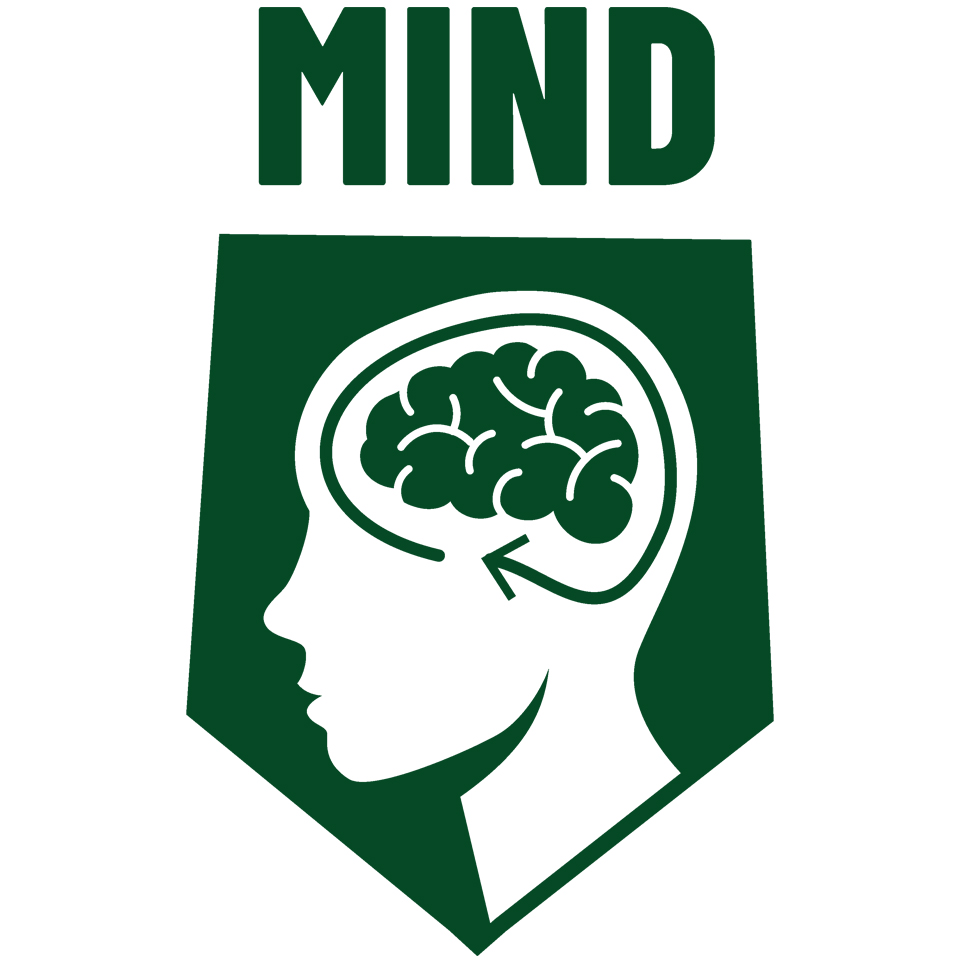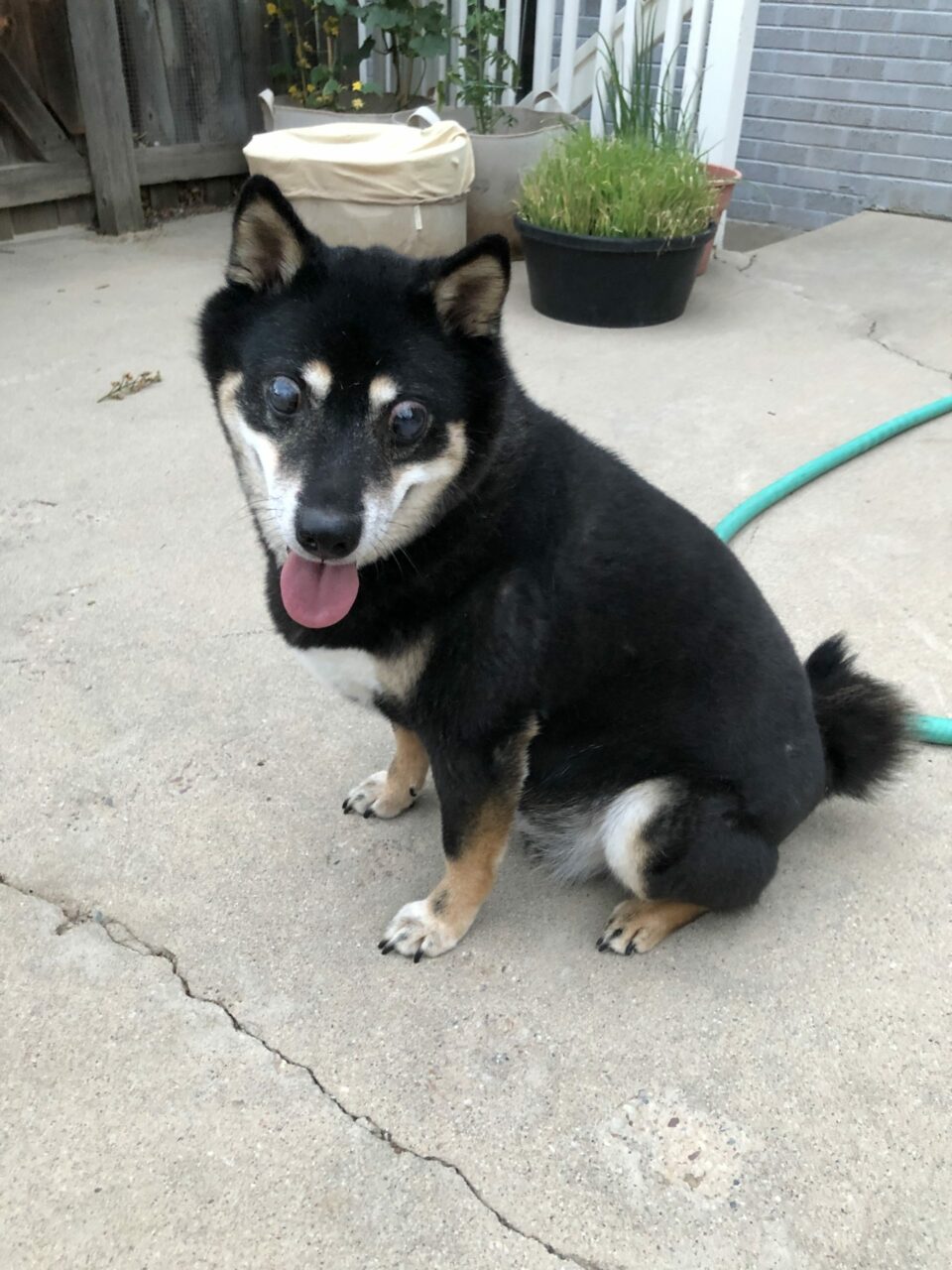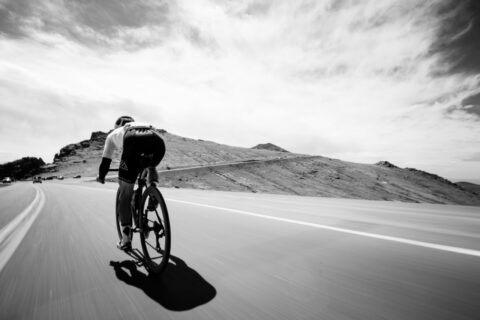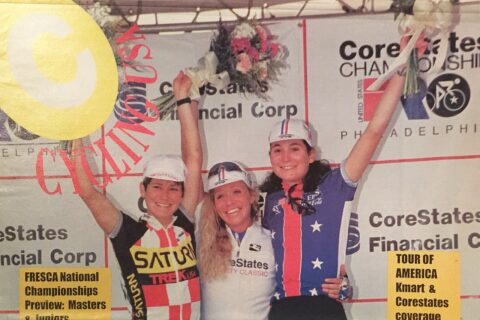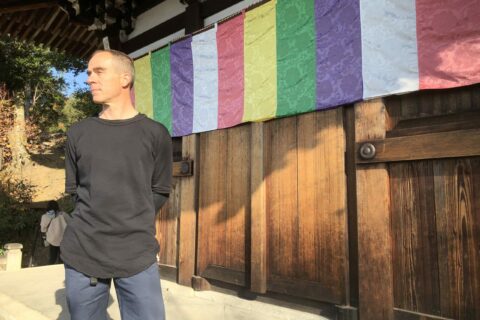Today on Cycling in Alignment we take a step back, off the bike, to focus on the alignment of your mental state. Every activity can be classified as “yin” or “yang” according to ancient Chinese philosophy. You’ve likely seen the interlaced black and white circle representative of this philosophy; the symbol illustrates how seemingly opposite forces can be complementary and interconnected. But have you ever had an in-depth lesson on yin and yang?
More importantly, have you learned how to apply this knowledge to your life? Lucky for you, Colby has some answers. All you Type-A, go-getter cyclists, it’s time to contemplate the importance of balancing your yang activities with the yin.
Ready for some intervals from Coach Colby? How about a six-by-six-minute breathing workout as you slowly walk around the block?
REFERENCES
- The Dragon: https://www.paulcheksblog.com/the-dragon-2/
- Tai Chi Poster: https://chekinstitute.com/gong/
Otto, the blind Shiba Inu
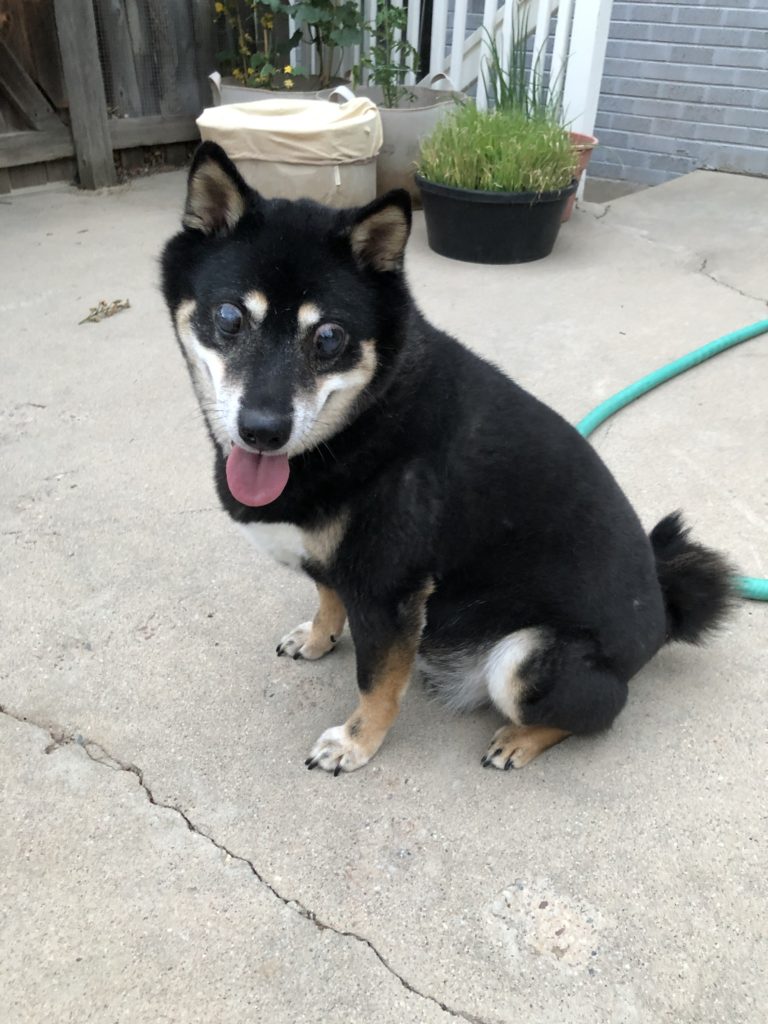
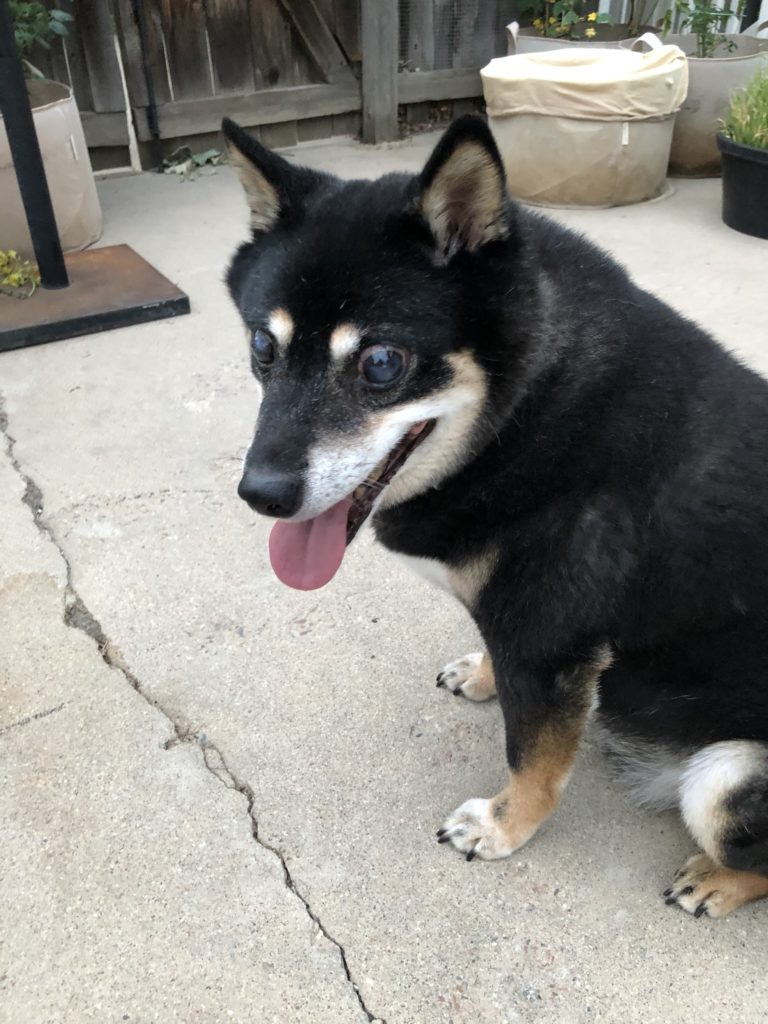
Walk the blind dog on Strava
https://www.strava.com/athletes/297318

Paul Chek’s Tai Chi Poster
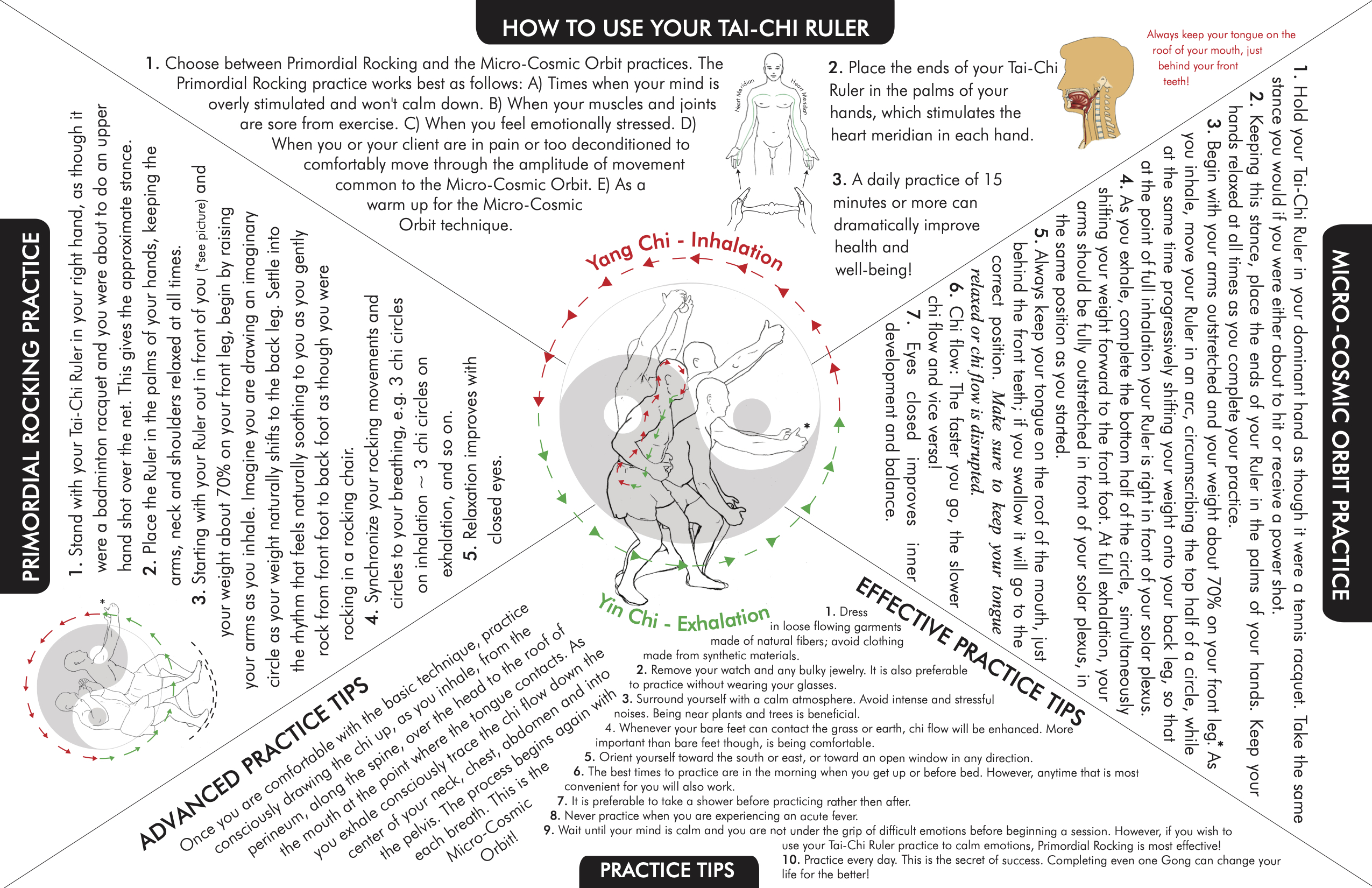
Episode Transcript
00:13
Welcome to the cycling and alignment podcast, an examination of cycling as a practice in dialogue about the integration of sport, right relationship.
Colby Pearce 00:25
Hello there, peoples of the internet listeners of the things. Today I want to talk a little bit about work life balance, or we might say cycling life balance. A lot of these concepts will be interchangeable. So I’m going to start off by reading a little bedtime story or a daytime story rather, from Paul Jack’s blog, we’re going to put a link to that in the show notes. Paul shares with us a drawing of a dragon that he did. It’s a it’s quite colorful, and dragony lot of scales and things and stuff. And Paul says my drawings of dragons are largely motivated by my studies of Chinese cosmology. In the Chinese cosmology story, the dragon creates universes as its hobby. Each time it creates a new universe, it breathes two new dragons into existence. One is the female dragon or yen, and the other is her identical twin brother Yang. The dragon then says to his children, this is your universe, you can rest from the responsibility of managing your universe when the two of you can get along. So the idea here is pretty simple. It’s that yin and yang are two energies that are a bit opposite to each other and they’re always tussling, and playing and fighting, kind of swinging back and forth a bit like a pendulum. I want to outline these concepts so that we can understand how they play out in your life. These two energies are constantly fluctuating. And when we have one or the other in great excess problems ensue. What we’re looking for what we’re striving towards his balance. Of course, that’s an ideal. And it’s actually not really the perfect end goal because the interplay between Yin and Yang is what causes movement or tension in the universe. And if they were perfectly matched all the time, then there would be no movement. But don’t get caught up in that wormhole because the vast majority of us have too much of one or the other. And excess is unfortunately a common theme in 2020. So let’s unpack yin and yang a bit or young as it’s more properly pronounced. I’m going to go with Yang Cuz that’s how I roll. Heard it both ways, so we’ll just go with it. Examples of yin and yang Yin is more anabolic or muscle building. Yang would be more catabolic or muscle destroying. Yin is wet, Yang dry. A seed is Yin. A sprout is Yang. Nighttime is yen, of course, because in his rejuvenative energy or restorative the daytime is Yang. The daytime is when you do all the things and expend all the energy you deplete. Yen is a cooling energy. Yang is warming yen is slower. Any activity that’s done at a slower pace will be progressively more yen in any activity that’s done with a faster rhythm or faster pace is progressively more Yang On the way to the office today I was driving, and I stopped at a light, I don’t drive very often, because I’m like 40 year old virgin, I drive a bicycle. But I was actually driving today. And we stopped at the red turn arrow to turn left. And at the light there was a car that decided to do a burnout in place even though the car was behind several other vehicles couldn’t go anywhere. So there was the smoke and the noise and the tires and the burning rubber and the whole bit and everyone turned around and looked. And it was, you know, pretty cool, I suppose. So then the straight arrow goes green, and that line of traffic goes forward and Mr. Mr. Rubber racer goes tearing off across the intersection with his buddies. And I’m kind of watching all this happen and then our arrow turns green to turn left and about zero point point eight seconds later, the person behind me honks their horn.
Colby Pearce 05:05
Obviously, this person is in a hurry to go somewhere. Now, normally I’m pretty conscientious of being out of other people’s ways. I find it particularly frustrating when I’m trying to go somewhere and be very Yang and get all my stuff done and do all the things. And I tend to have a quite a full day as many of us do. And if someone’s doing 25 miles an hour and a 40 in front of me can be a bit frustrating, because my perspective is, man, I got places to be, can you please be sensitive to the fact that there’s someone driving behind you and that they want to go somewhere in a timely fashion. But today, for whatever reason, I decided to respond a little more slowly. My instinct was that this person behind me probably needed to slow down for some reason. That was maybe a bit of a lofty consideration on my part. I mean, who am I to decide what are the persons need but to be fair, there are two lanes as soon as you made the turn, if they want to go around me they could. Well As it turned out, I accelerated very slowly and took quite a bit of time to get up to the speed limit, and this person went even slower.
06:18
Who knows?
Colby Pearce 06:20
Maybe they hit the horn by mistake, but I felt in that moment that to slow down was the wiser choice. We’ll let the universe decide if I was right. But I bring that up as an illustration of a way in which you can embody Yin or Yang activity in or energy in any decision you make. This is always possible just requires a bit of consciousness, a bit of conscious action, which is always the goal. Yen is also parasympathetic. We hear a lot about the parasympathetic and sympathetic nervous systems and how the sympathetic nervous system is always ramped up because we’re being chased by tigers. This is the colloquial Example. And only now apparently tigers are shaped like cell phones. So, Yang is of course sympathetic energy. Yin is about unity Yang is more along the lines of division. Yin is more nurturing, Yang is provoking, yen is accumulating and Yang is of course spending. When you divide and spend, then you are left with depletion. If you do it to access yen is water. Yang is air.
Colby Pearce 07:48
This is an important one, too to have Yang energy on the bike is to work out which is the colloquial I mean that in the most colloquial sense, work out go have a work out, or to go to the gym and workout. You can also exercise in a way that is rejuvenative that is working in. That’s Paul’s term for physical motion that doesn’t deplete you, but it actually rejuvenates you. And I’ll talk a little bit more about those concepts and how those can be integrated. But it’s a very Western concept to assume that every workout has to accomplish something and you have to be smashed at the end of it, or it wasn’t worthwhile. It’s a very Yang concept to associate working out with no pain, no gain or that it’s all about suffering. And some people love that mindset and lots of people are also addicted to the neural chemicals that are released when we exercise like that. Probably myself included. Yen is also about creativity.
08:48
Yang the Yang
Colby Pearce 08:51
translation would be transformation or transforming. On the inside, we have nature Spirituality and silence. And on the Yang side, we have industry, science, and language. Although that said, I do know a lot of women who like to talk a lot. Which brings me to my point that we all have yin and yang energy in all of us, we assign these masculine and feminine characteristics to them. And, likewise, we should contain both energies in ourselves, we should be able to express both energies at different points throughout our day throughout our lives. That would be having balance. If there’s excess Yang, you end up dried out depleted if you ride your bike way too much. This results in Adrenal Exhaustion, right? dehydration, glycogen depletion, either acutely or over a longer timeline, or both. So when you train to access you are embodying Yang energy How do you regenerate? How do you swing the pendulum back the other way you embody or you actualize Yin activities, the single biggest inactivity we have the most important one is sleeping. Sleeping is number one, as natural says, Okay, so let’s let’s consider for a moment, the big picture here. Why do we care about our Yang lifestyle, all the activities we’re doing on a daily basis? Well imagine you are in the final seconds of your life you are about to die, you’re on your deathbed. And this should not be a new thing, a new thought that goes through your head. Or as we can discover in a quote from the Hagia Cory The Way of the Samurai is found in death. Meditation on inevitable death should be performed daily. Every day when one’s body and mind are at peace, one should meditate upon being ripped apart by arrows, rifles, spears and swords, being carried away by surging waves, being thrown into the midst of a great fire, being struck by lightning, being shaken to death by a great earthquake, falling from thousand foot cliffs, dying of disease or committing seppuku at the death of one’s master. And every day without fail, one should consider himself as dead. This is the substance of the Way of the Samurai. Some people will think this is super morbid or depressing, but I don’t see it that way at all. To me, it’s the opposite. When I consider my own death, maybe not in as cool or dramatic ways as the samurai is going to die. I see the precious gift that I’ve been given on this planet and I it makes me It helps me have gratitude or perspective of gratitude about the opportunities I have to impact people’s lives positively, to do cool things to experience amazing things. You know, life’s not a resume, no one looks back on your life. When you die and counts you counts the number of cool things you had, you have to have those for yourself.
Colby Pearce 12:31
And I’m not here to have a list of accomplishments on my gravestone or my eulogy or whatever. That’s not what it’s about. So in these final seconds of your life, are you going to think to yourself well, crap, I never got that To Do List done. I never had that gutter fixed. I never I didn’t have the oil changed regularly in my car. You know, what are people gonna think? never picked up that dry cleaning. Of course. Not. These are not important things. These are just two dues on a list. What we’re going to be considering is the significant moments of our life. And we’re going to be wanting to connect with our loved ones, our family and our friends that had meaningful impact on us. You know, for me, that’s going to be the day I got married a day my daughter was born. The day I wrote in the Olympic Games. Today, my mother died, the day my father died. These are what I expect to go through my head. In the final seconds of my life. I mean, I don’t know for sure, to be honest, I’m not dead, and I’ve never had a near death experience. I’m just a loving person. So I’m imagining how this is going to go down. That’s the point of the exercise is to consider it. And when you look back on your life and you think about how you lived your life, how you chose to spend your time are you going to be satisfied with a life of robot tronic activities where you just shot asteroids endlessly and did it as quickly as possible? I mean, this is the nature of this game robotron specifically, you had two controllers, you had one was a directional joystick, which didn’t actually move your character, which was robotron robotron always stayed central central to the screen. What it moved was the direction of fire from your leisure cannon. And the button was your second controller and that controlled every time your laser fired. What was cool about the game is you could so you could point the laser very quickly, but you could also hit the button very fast and it was extremely responsive. That was the whole nature of the game. It was a very, very yin yang oriented
14:55
exercise
Colby Pearce 14:57
and when you live in that universe, of Trying to shoot as many asteroids as possible as quickly as possible. your entire life is Yang energy, and you will end up dried out and depleted. Not only that, but you’ll have used your limited finite amount of time on this planet, doing things that I’m out to no thing. Because ultimately, you are no one no place, no time and no thing. Meditate on that. I’m going to tell you secret, the asteroids never stop coming. You are in an asteroid field constantly. The only way to check out of the field is to go live in Alaska and catch salmon in a river and go completely off grid. And if you’re doing that, then you’re not listening to this podcast. So for everyone else, who’s either part of this audience or every other person on the planet. You are in an asteroid field of constant things to do. So, how do we do it, there is no field in which the asteroid stopped coming. The practice is to use discernment, you decide which asteroids are imminent, which ones must be dealt with which ones can be left for later and which ones can be ignored completely. And you use an extremely discerning method when you categorize these asteroids. That is how we maintain sanity. When you assume that all these asteroids that are hurtling at you must be dealt with in some way, or you are paralyzed with indecision, you’re gonna have a constant level of anxiety. I hate to say it, but being decisive is one of the core skills to live with some semblance of parasympathetic normalcy in our age. So when we translate this to cycling this extent To actualizing in activities, it means not always assuming that more is better, which is a Yang mentality. It means always adding an extra interval, doing every interval until your eyeballs bleed, adding more kilometers because you have time. Basically, it’s the entire foundation of it is the more is better attitude or the more is better philosophy. And to be clear Cycling is an endurance sport and there are times when more is better, especially as a competitive writer. Where I think people get a little mixed up is they overestimate the more is better model at the expense of rejuvenation, and recovery. And they also overestimate their own. We’ll say happiness quotient coming out of practicing that model in the sport. They assume that if they’re 5% faster, it’s going to make them 100 I’m happier, because they’re going to be so much better in the next criteria or the next group ride. And the reality is that most people don’t win races most of the time.
18:11
Racing is not a
Colby Pearce 18:12
court sport. You don’t either win or lose. Most bike races you lose because you didn’t win. Now, of course, I’m not painting a dark picture on that. I think there’s a lot of things you can learn and win and gain from getting 12 plays in a criterium or for your placement criteria you don’t winning is not the only thing I’m not Reese Bobby here I’m not telling you if you ain’t first you’re last I was probably when I said that. You’d be all kinds other places you’d be third fifth and you anyway, so I’m not saying winning is the only thing of value at all. Far from it. What I’m saying is treat the sport as a practice and balance out the Yang the doing the dividing the smashing the the perfect productivity with some yen activities and what is yen at its core. It’s about self care. It’s about taking care of the self. Or I’ll go one step further. It’s about loving yourself. That one probably got a few people probably hit him. They were listening in a place. And what that means is, if you were a little reactive to the statement, do you love yourself for the question? Do you love yourself? Then there’s a good chance that you are struggling with that issue for some reason. What does that mean? Well, in our society, it’s not necessarily highly valued to love yourself. What we’re focused on is doing, but we’re not human doings. We’re human beings. And in order to be you’ve got to be in a place of love. You’ve got to look after yourself. So. Okay, let’s break down some basic ways to add into your life. Look, I mean, we can go a number of different directions with this and some of them can be super hippie dippie. Whoo. You can be like me and go do Tai Chi every day and have your Thai tea stick and Be a hippie and that’s fine. But you don’t have to do that. If that’s not you, the key is to figure out what works for you. Yin is fundamentally anything that’s rejuvenative that can be simply moving very slowly. It can be a really slow walk with the dog. And maybe if you want extra credit, you can focus on some breath work. Box breathing is a very simple way to turn a walk into something that is in what’s box breathing. Pretty simple.
20:31
You count
Colby Pearce 20:33
for every exhale, and every inhale and you also count for the holes in between, at the bottom of the breath and at the top of the breath. So as an example, you might start out walking and you can count as you step so you can walk four steps, and breathe out. Hold for four steps. Breathe in for four steps, hold for four steps. This sounds really easy for people. I’ve never done it. Try walking for 10 minutes. straight and actually doing a four count box breath with slow steps, it’s quite challenging, requires a lot of attention. It can be kind of boring, monotonous. And sometimes even activities can be very productive when they’re a bit boring and monotonous. People who get bored quickly probably have a hard time sitting still and being with themselves. So if you get really bored very fast after 30 seconds of attempted meditation or box breathing, recognize that reactivity maybe that’s something in you that needs to be dug into a little further. Are you a person who’s capable of intentionally setting side aside time for you to just take care of yourself? Can Be gentle stretching. Yen can be chanting, humming, singing, making music on a hand pan. yen can be making art. It can be dancing, right? Any of these activities can be added to daily life even in small doses. And it’s what Paul would refer to as unbound play. It’s the opposite of a Yang activity, which has an end. It has a goal. It has a checklist. It’s got a little box, you can check at the end of it and say, I did that I took out the trash, and then I scrubbed the kitchen, and then I vacuumed. And when you do all those things, you feel productive and you feel good, and we all have to do productive things in our life. What I’m saying is there are moments in life where you should do something without aim. unbound play, just do something for the fun of it. Make a doodle draw a funny picture. It doesn’t have to be a good picture doesn’t have to be some master work of art. You’re not going to turn into Da Vinci with your pencil in your your post it note. Just make a funny picture of a poodle or so. sunshine or whatever, sing a random song, do something goofy with your kids for a few minutes. That is that all those all fit the definition of unbound play. And when we add those to our life, when we choose to add the activities to our life and stop always adding to the Yang pile, here’s the magic of it. Your next interval workout becomes more productive, because you didn’t ride all week and maximize every single mile and go around the block four more times to add another three K. Instead, you went home and you played with your kids for a few minutes or you did something random or just sing a song and it balanced out your energy and it helped add to the recovery pile the rejuvenation pile. It swung the pendulum slide the other way from your two hour ride you just did with your intervals or your group ride or whatever you just participated in or help them when you take a moment to breathe deep and stretch your muscles at the end of the day. Before you climb into bed, it’s rejuvenative. And then your next interval workout two days later is that much sharper. It’s that got that much more depth. Because psychologically you’re more balanced. And physically, you’ve given yourself the opportunity to calm the nervous system. This isn’t just philosophy. This is also about reducing cortisol, lowering cortisol levels and lowering adrenaline levels, which are both jacked up every time we get on the bike and go hard. So when you walk in the door for a ride, you’ve got high adrenaline, you’ve got high muscle tone, you have high cortisol levels. You feel like a million bucks because you just rode your bike and your body’s flooded with all kinds of post exercise endorphins. And that’s great. When the workouts over though it’s time to reverse that cycle and swing the pendulum to the other side. Focus on recovery modalities, focus on rejuvenative modalities. This is where you in comes in. So when we think about life from this bigger picture perspective, and we can act more, we can make choices in daily life with more conscious intent, that we’re able to see the motivation behind our activities behind our decisions.
25:19
Instead of
Colby Pearce 25:21
blindly choosing to always do more and more and more, ride more, accomplish more smash more go deeper. The last bit I’ll give you is one of Paul’s happy little mnemonics. He has some sayings that are a bit corny, at times, and this is what’s brilliant about them because they’re corny, you tend to remember them. And they’re corny on purpose so that you remember them so that when you snap into reactive, sympathetic stress bomb asteroid mode, you can easily recall this technique. That’s why he does What he does, so you might read some of his material initially and think this guy’s kind of a dork, like, why does he come up with these silly names for these things? Paul’s really smart. He’s forgotten more things than I’ve read in my entire life. So his technique is called. I don’t know what it’s called. But it’s got three phases, name it, blame it, and tame it. The name it is when you feel yourself being reactive. When you feel yourself behaving unconsciously. When you feel yourself automatically engaging in a behavior that is, in this example, or in this discussion, more Yang, I’m going to do this. I’m going to accomplish this, divide this. So when you name it, you call it something. So let’s say that your Yang tendency is you’ve got 15 minutes between when you have to leave when you’re home and when you have to leave For the next appointment and immediately you’re thinking about how you can fill that 15 minutes with something productive to make yourself feel good. This is equivalent to a Yang, Halloween candy bowl made you’re going to walk by it and grab a Snickers needed and feel great. Just because you walked by the bowl, you grabbed it and you put it in your mouth and who that tastes good. Okay. So it’s a candy bowl. It’s a candy grab. It’s a simple thing you can do to make yourself feel good, but it’s a bandaid. What can you do in 15 minutes at home, you can change that light bulb, run downstairs, look in the box, find run to the garage, find the light bulbs. Grab the light bulb run upstairs. Take the old one other lamp, it’s the wrong wattage. Go downstairs, drop the light bulb on the floor because you’re in a hurry. Smash the light bulb all over the floor. The dog walks in the floor of the basement floor now you’re concerned about the dog cutting his paws. This is an example of your neurotic behavior, I’ll say or your compulsive desire to fill the day with productive activities has Gone slightly wrong, because you filled it with too much Yang intent. You’re trying to cram too much crap into your day. And now it’s taken a twist, and now you’re stressed. So, okay, you’re sweeping the glass up on the floor and the dog cuts his paw. And now you’re considering going to the bed and you have to hold him down with the tweezers and now you’re late for your appointment. And then the afternoon the rhythm of the afternoon has been derailed all because of a broken light bulb. Okay, silly example, but you get my point. Let’s reflect on this for a moment while you’re pulling this glass out of your port labs pause. We What happened? What happened was you tried to jam a project into a timeframe and you were concerned about the time. So you rushed and that caused a mistake. And you could say, well, it was just a mistake. I dropped a light bulb that happens all the time. Yeah, of course. But as we rush and try to do things, cram more into our days, shoot more asteroids and become more of a robot tronic the chances of us doing something sloppily or maybe A mistake just go up. It’s just the way humans work. So we name it what are we going to name this guy? Well, let’s call it
29:10
the
Colby Pearce 29:13
I’m rushed. We’re gonna call this I’m rushed. And I rushed in sloppy monster. Right? This is how Paul terms that I told you it was corny. The I’m rushed and sloppy monster. Okay, so now I’m going to blame it. Well, whenever my I’m rushing sloppy monster comes out. I tend to break things. And in this case, I actually injured one of my family members. I was responsible for this bad sloppy monster, bad Russian sloppy monster. Now I’m going to tame it. Well, okay. How do we tame it? Just by witnessing it. Look, this is really just a simple meditation practice. By Witnessing your own behavior by removing yourself from the behavior and recognizing it from afar and calling it out what it is by naming it, you are distancing yourself from it. And as soon as you do that, you realize that you have a choice. You don’t have to automatically be driven by that behavior in future, similar circumstances. So the next time you’ve got 14 and a half minutes and you want to do something productive, instead of scrolling Instagram and blowing your mind up, maybe you’re just going to put your phone down and do a gentle forward bend and take six deep inhales, six deep exhales, you’re going to alternate those. By the way, don’t do all the inhales at once. doesn’t really work well. Maybe you’re just going to stand in place with perfect posture, find your gravity line, which means extend your spine slightly and lift your toes off the ground and see if your weight shifts back. It’s really common for people to have Yang oriented behavior. To be leaning forward lizard, literally their physical posture is leaning forward, their weight is more on the balls of their feet and less on the heels. And sometimes their hips are shifted forward, and their entire bodies leaning forward because they’re always going and doing. So you can see this posture early in some people. So when we want to check out of the Yang for a moment and stop doing, it can be useful to pull our weight back our standing weight back so that we drive the heels into the ground. And the way to check if your weight is too far forward, stand with what you think is perfect posture. And then just lift up all five of your toes on each foot. And if your weight rocks back, you know that you were not centered. So now we’re going to center your weight over the heels and the balls of the feet and just take a moment and breathe. I’ll give you another secret. There’s a lot of science behind this. Some of which I know and a lot of which I don’t, but it doesn’t really matter. I don’t know how my computer works either. But it sends email and I can use it. So this is how to use this. Breathe into the count of six. Breathe out to the count of six, six is the magic number. six by six by six, six deep breaths. Count of six, count of six, exhale, count of six, inhale. That will bring you right back into parasympathetic. If you do it
32:31
in
Colby Pearce 32:34
a calming way with a calming intent, not with a checklist way don’t make it a Yang. Don’t make it a to do list. Just drop in and do it. Just check out for a second. So one of my little yen activities that has been pretty potent for the last about year of my life is walking our dog. We own a Shiba Inu If you don’t know what a Shiba Inu is just picture a miniature version of a husky. But with the demeanor of a Japanese man, most of them are pretty, pretty aloof. Not necessarily the most affectionate dog, although ours happens to be quite affectionate. I wouldn’t say happens to be I mean, we, we’ve raised him with a lot of affection. So I think he’s grown into that. He’s only about nine years old. Now. His name is Otto. And most shibas are like a lighter coloring like a tan and white. He’s a black and tan. Mostly dark. He’s very handsome. But he’s kind of funny looking, because he had sudden onset of glaucoma in both eyes. And that means his eyeballs kind of swelled up. And so he sort of this handsome beautiful dog with this perfect hair and these little cappuccino dots over each eyebrow. We’ll definitely need to put a picture of auto in the show notes. His eyes are swollen from a coma. So it looks sort of bug eyed and a little bit deranged. And he’s just such a sweetheart. He’ll just come up and give everybody little kisses in the back of their knees and stuff. very mellow, really chill. Super nice and pretty much loves everyone, but he’s funny looking right now. So people are a little, a little not quite sure what to do when they see him out when I’m out walking him. But imagine walking a blind 25 pound Sheba he knew who also had knee surgery about a year and a half ago to replace one of his little doggie MCs. He’s not moving too fast. So autos job. He has one purpose. He’s here to get me to slow down. And it works. So tonight Actually, I’m going to record our dog walk on Strava and you guys will be shocked to see. I don’t know how long it takes. I don’t usually time it but I bet that one lap of our block takes about 25 minutes. If that isn’t The perfect example of a yin activity, I don’t know what it is. We all have opportunities for you in in our life. When your child wants to stop and smell a flower, or look at a butterfly or pick up a rock or whatever, that’s an opportunity to slow down and enjoy. So I encourage you to explore those. And I think we’d all be a little better off if we could learn to caretake ourselves and give ourselves the love that we need. And that ultimately comes down to yen because in his feminine energy, which is loving and multiplying. So learn how to harness that ability in yourself. And if you can’t take care of yourself. Well, welcome to your own shadow. That’s some work to do. Take a look at that. What’s that all about? Comments, questions? useful. total crap. Send me an email. cycling in alignment at Fast Talk Labs.com. I’m going to go on a nice
36:15
little walk.
Colby Pearce 36:17
Signing off. superiors.
Colby Pearce 36:24
Disclaimer. Listen up monkeys. The ramblings on this podcast
36:31
represent
Colby Pearce 36:32
me and me alone. They’re not indicative of the thoughts or opinions of Fast Talk Labs or Chris case or Trevor Connor, or anyone else. Also, none of this advice is intended to prescribe or diagnose any doctor, don’t play one on the internet. So just want to be clear on those points.
